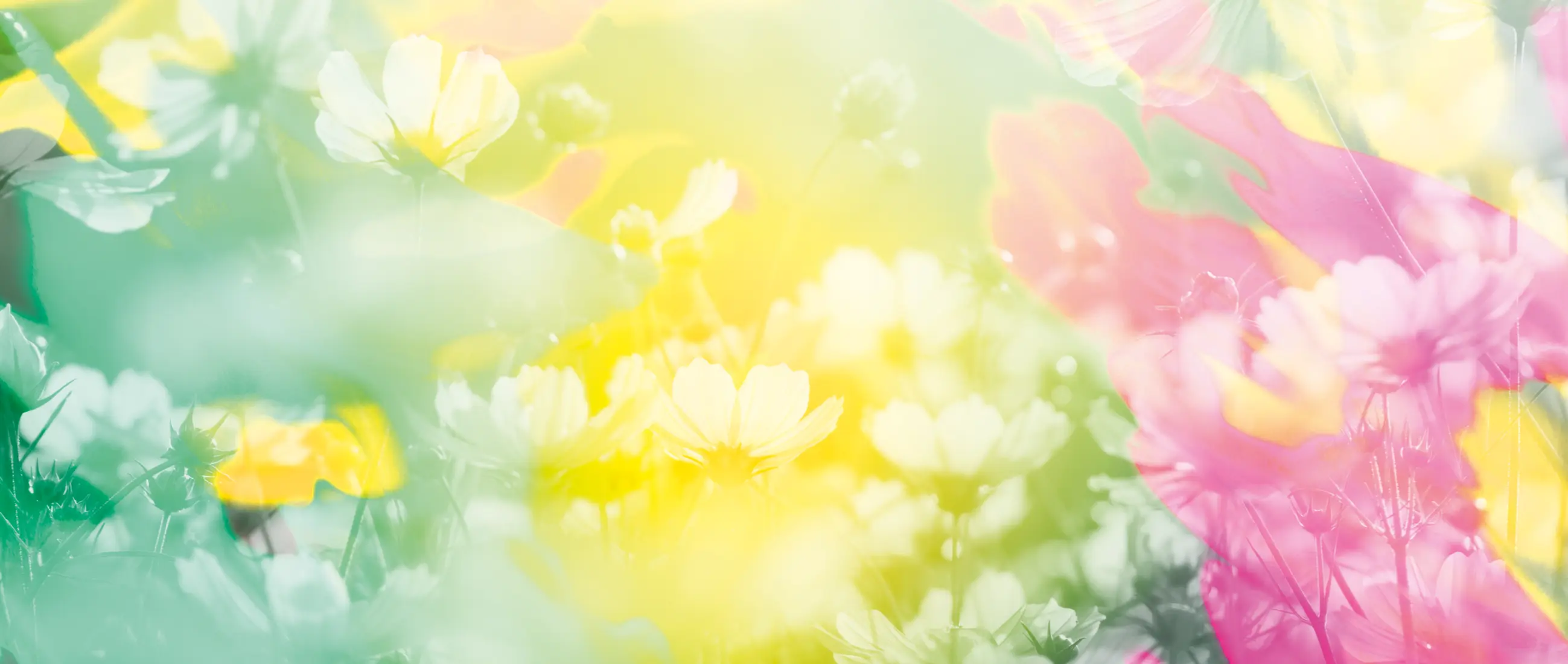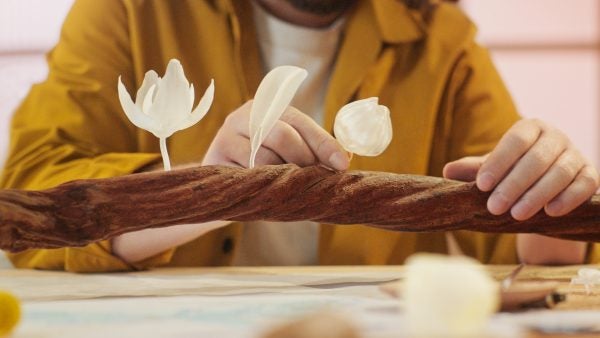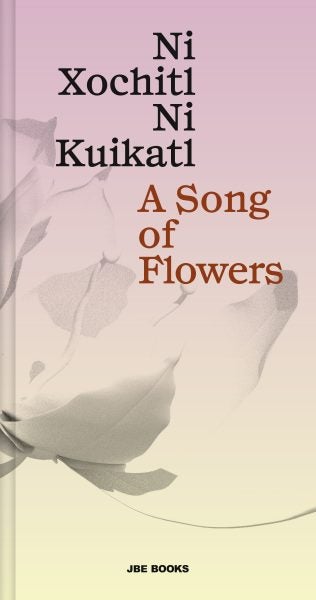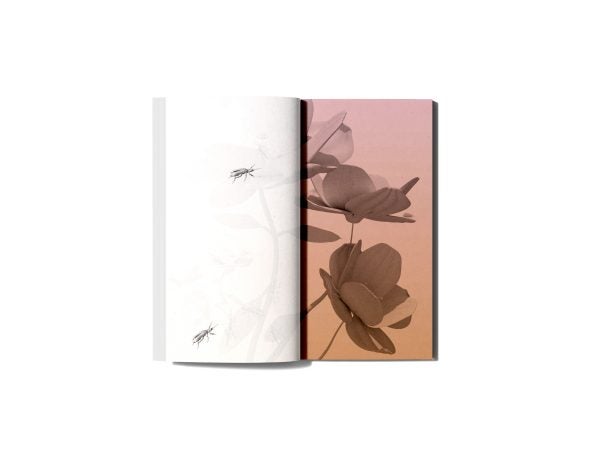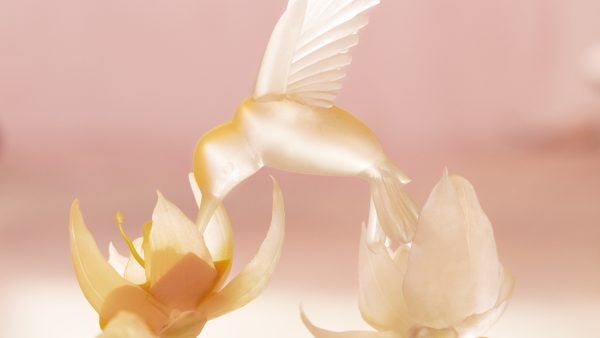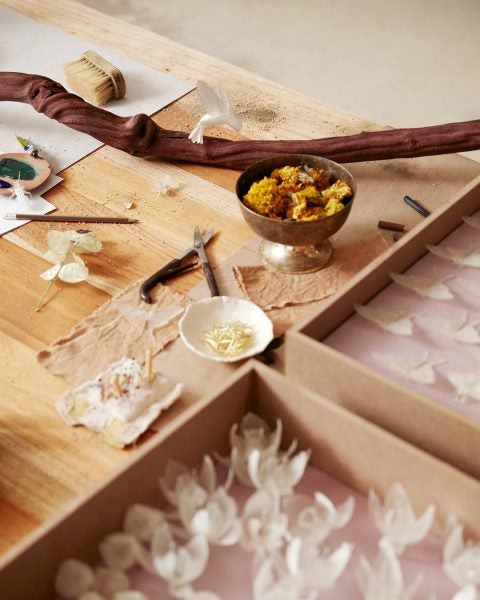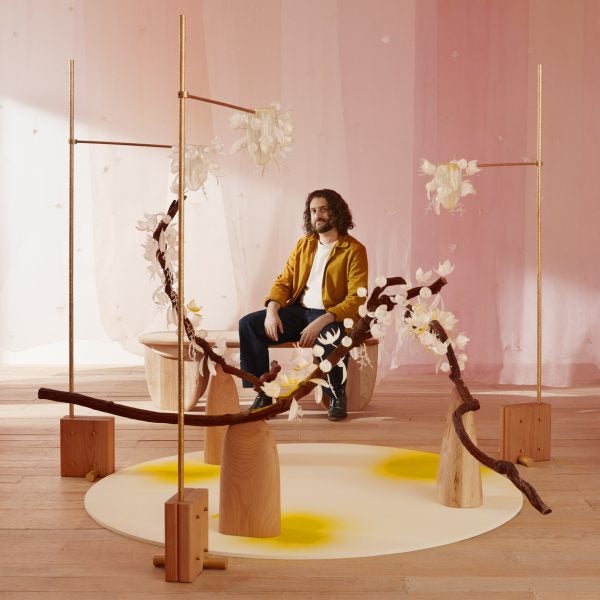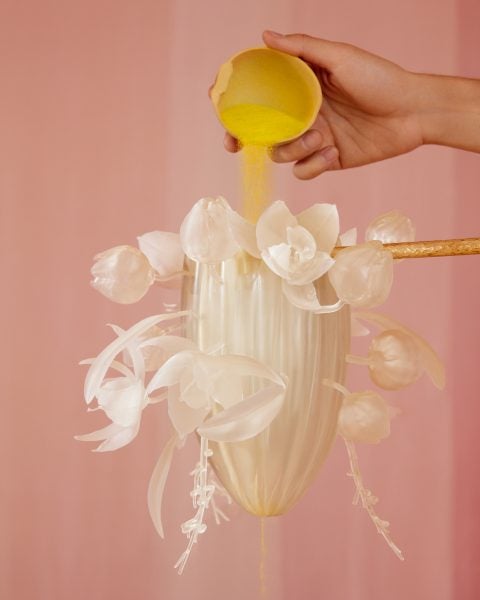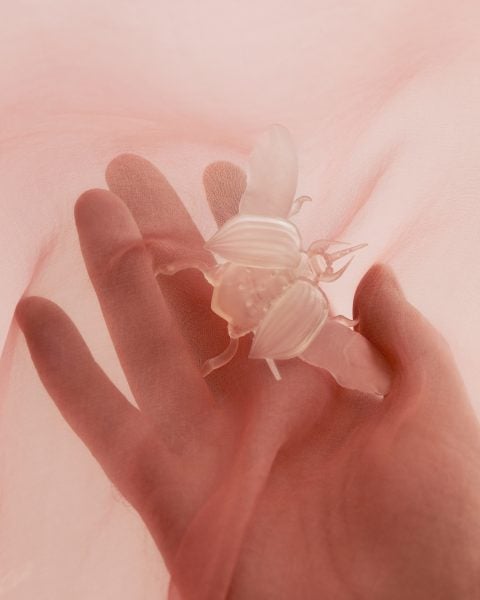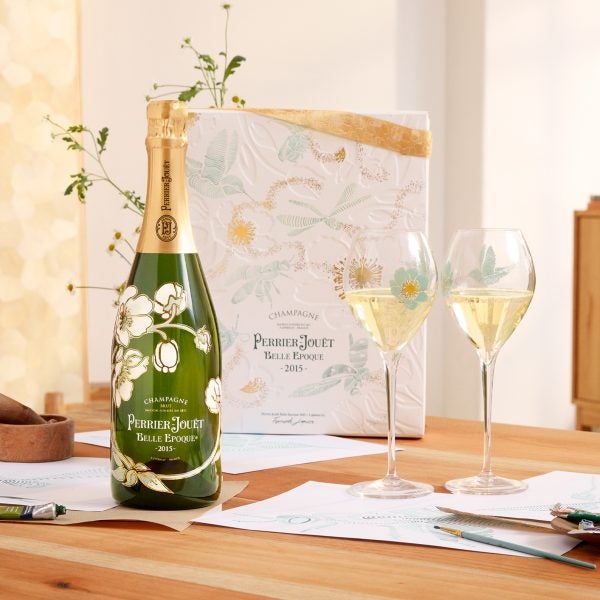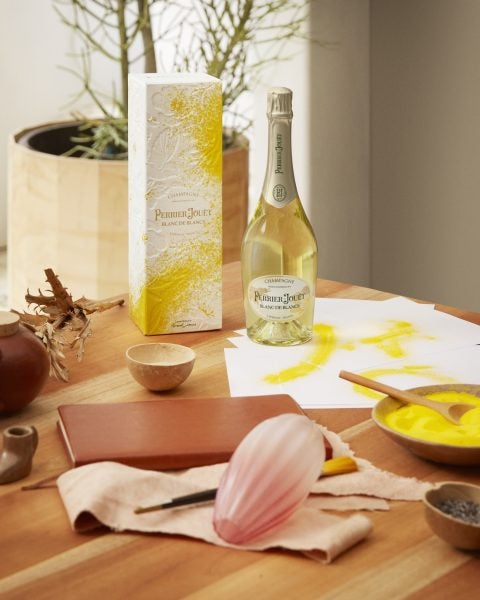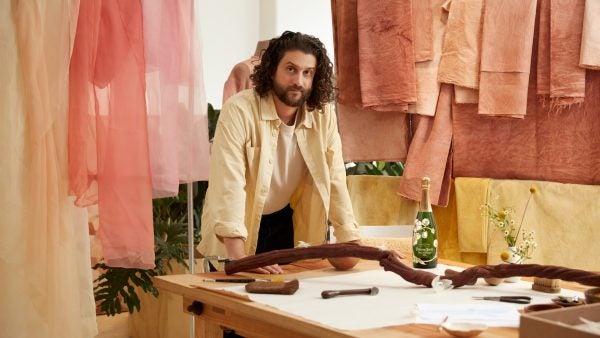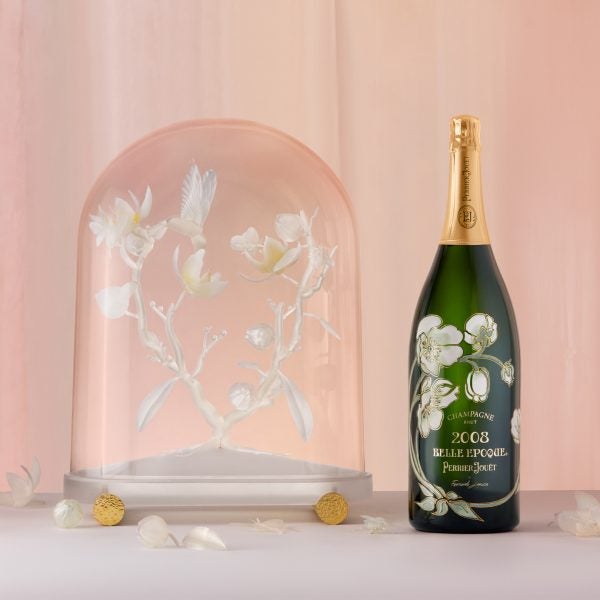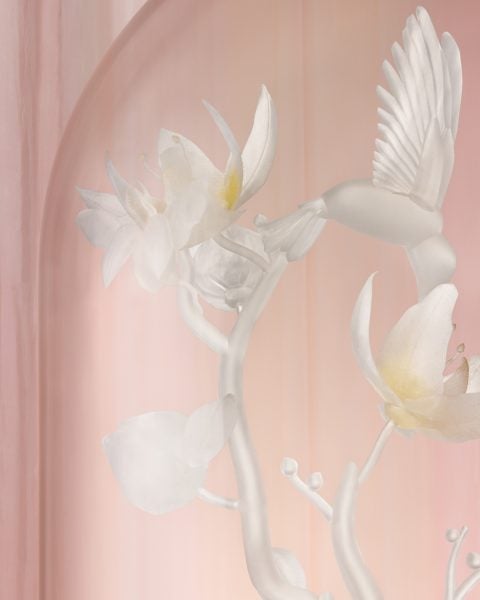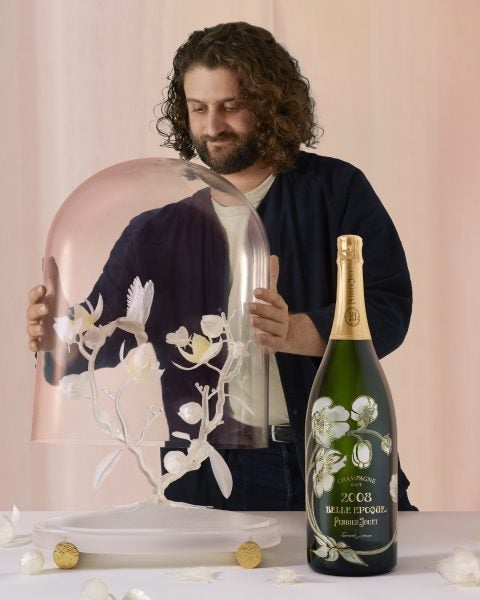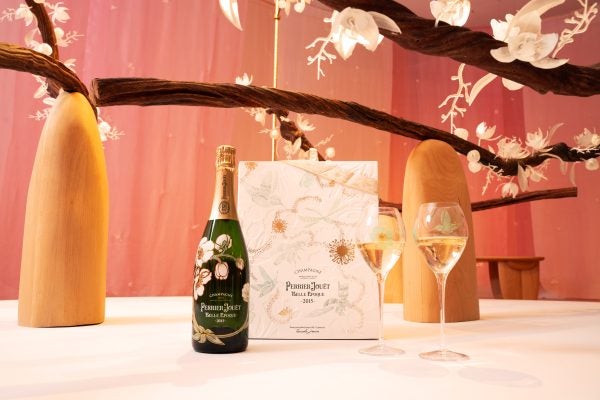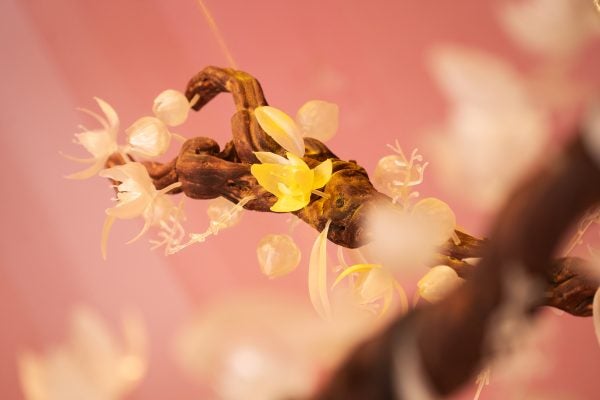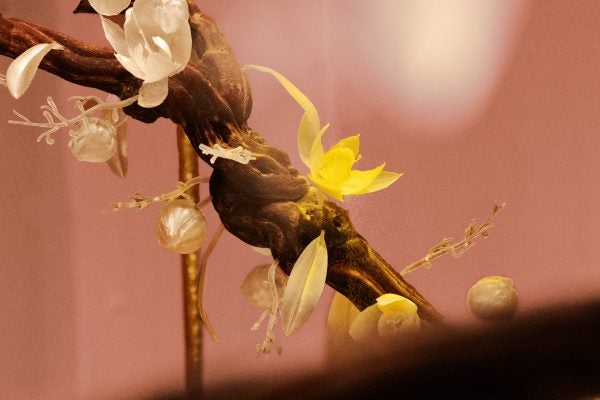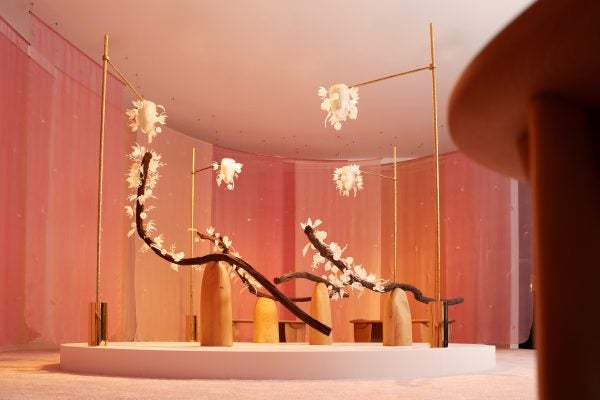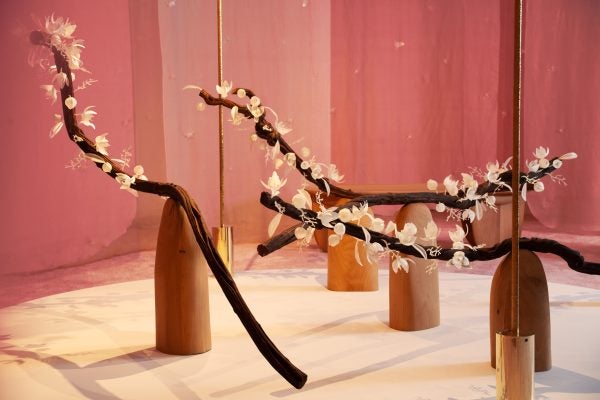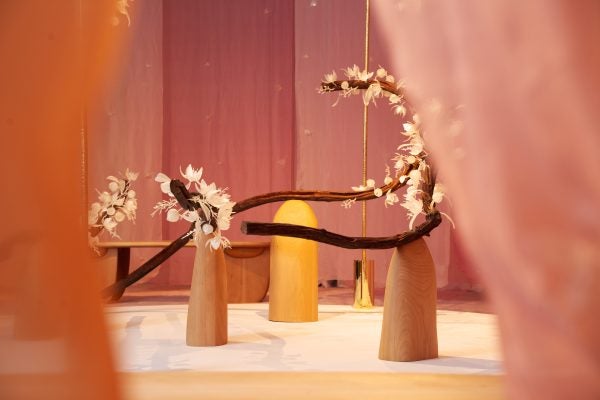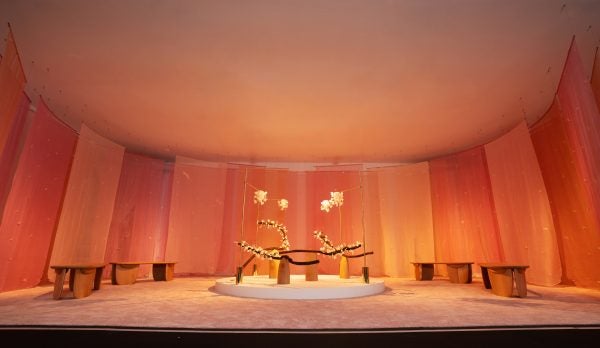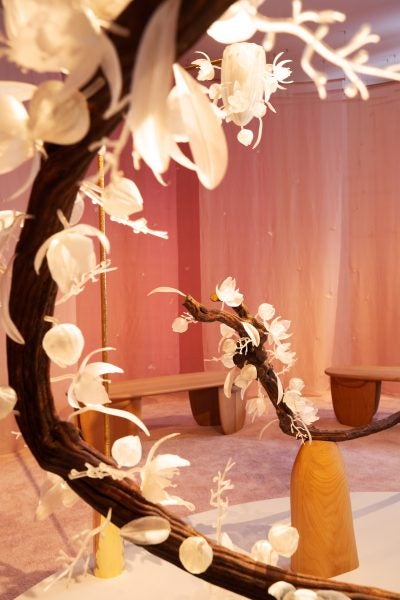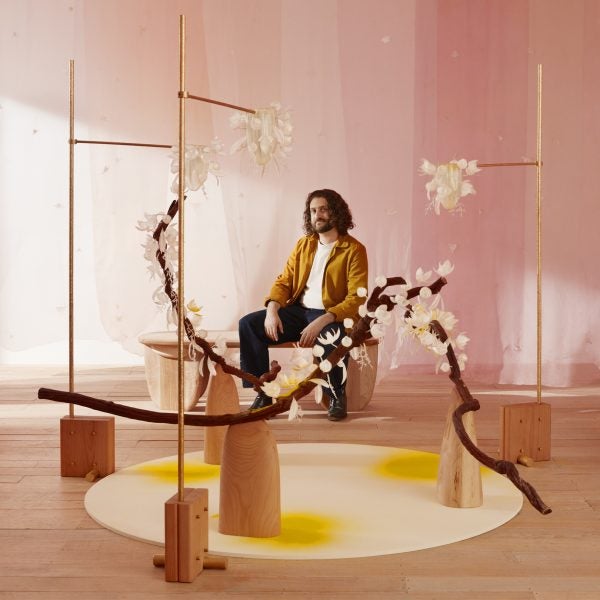An installation inspired by the observation of nature and the collaboration between species which celebrates life.
From 6 to 10 December 2023, Maison Perrier-Jouët is delighted to present ‘The Pollination Dance’, an installation by Mexican artist and designer Fernando Laposse, at Design Miami/. Since 2012, the House has offered an international platform to contemporary creative talents, both established and emerging.
Every year, it commissions an artist or designer to reinterpret its Art Nouveau heritage for the 21st century, thus renewing historical ties which epitomise its founders’ passion for art and nature.
For Maison Perrier-Jouët, Fernando Laposse has created an immersive installation inspired by the flower and its key role in a series of remarkable relationships within the ecosystem – in particular the process of pollination, a celebration of life defined by harmonious interactions between different species.
A HERITAGE OF ART AND NATURE
Maison Perrier-Jouët was founded in Epernay in 1811 by Pierre-Nicolas Perrier and Rose-Adélaïde Jouët, a young couple united by their love of art and nature, as well as their vision of champagne. For more than 200 years, these three pillars have remained central to the House. In 1902, Emile Gallé, one of the pioneers of the Art Nouveau movement, drew a spray of Japanese white anemones, which today decorates the bottles of Perrier-Jouët Belle Epoque vintage champagnes. The iconic emblem of the House, the anemone symbolises its close relationship with nature.
“Fernando Laposse has revisited the Art Nouveau heritage of Maison Perrier-Jouët with remarkable depth.
Freely inspired by nature, he combines savoir-faire derived from traditional cultures with cutting-edge
contemporary techniques. His work speaks to us through its beauty and poetry, at the same time as it reveals a deeper meaning,” says Axelle de Buffévent, Maison Perrier-Jouët Culture and Creative Director.
DESIGN AS A FORCE FOR CHANGE
Artist and designer Fernando Laposse manifests a profound connection to nature through inspiring
projects that raise awareness of ecological challenges, both local and global, including soil erosion and loss of biodiversity. His artistic practice, which is deeply rooted in the rural milieu, has simultaneous cultural, historical, social, political and environmental dimensions. For the past 10 years, Fernando Laposse has been working with native farmers in south-eastern Mexico to develop new materials and systems of production that benefit the local community and environment.
“The Pollination Dance is the perfect embodiment of what I think design should be about: offering real-world solutions with a joyful and poetic dimension. I am convinced that solutions for local problems can be applied to global situations” says Fernando Laposse.
AN INSTALLATION DEVOTED TO OBSERVATION OF NATURE, MEDITATION AND REFLECTION
Maison Perrier-Jouët and Fernando Laposse share a vision of nature in which all species, mankind included, are of equal importance. The collaboration between species can help to solve the environmental problems faced by our societies. The artist advocates a return to the observation of nature – something he feels has gradually been lost in western societies – as evidenced by ‘The Pollination Dance’, which was inspired by the fundamental role of the flower within the ecosystem to which all species belong. In particular, he focuses on pollination, with its complex and harmonious interactions between plants and the insects and animals which pollinate them. Pollen is the essential connection between the protagonists in this precious, ephemeral event, which is a celebration of life.
The installation is envisioned as a garden – half real, half dreamlike – in which all life forms interact. Sheer silk-organza drapes surround the space, creating a sense of immersion, while the hundreds of insects that have settled on them seem to dance around the visitor. Several times a day, a human hand refills a series of hourglasses, which contain yellow sand representing pollen. As the sand runs away, it covers branches filled with flowers – both imaginary blooms created by Fernando Laposse and Maison Perrier-Jouët’s emblematic anemones – and a diverse array of more or less familiar pollinators (honey bees, bumble bees, butterflies, moths, beetles, hummingbirds). Benches are an invitation to contemplation and reflection.
A TRADITIONAL SAVOIR-FAIRE AND CONTEMPORARY TECHNIQUES
Painstakingly crafted by Fernando Laposse in his Mexico City studio, the installation took more than six months to create, and combines local artisanal savoir-faire with innovative technology. The drapes, which are made of natural silk fibres, are dyed with a mixture derived from an insect (cochineal) and a flower (marigold), which was produced by the artist using ancestral techniques. Offcuts of the precious fabric were used to create the outfits worn by the attendants who maintain the installation. The delicacy of the silk organza echoes that of the hourglasses, made from 3d printed soy starch based eco-resin, which are as fine and fragile as frosted glass, whose appearance they resemble. This same material was used to create the hundreds of insects, each one carefully sewn onto the drapes in the artist’s studio, as well as the plant and animal forms on the installation’s branches. The branches are lianas – as indeed are vines gathered by Fernando Laposse from a jungle in central Mexico, thus giving dead wood a second life.
A JOYFUL, MIDNFUL VISION OF NATURE
Like pollen swirling in the air in spring, the installation by Fernando Laposse conveys to visitors the joyful vision of nature he shares with Maison Perrier-Jouët – a vision at once positive and mindful.
Faced with the accelerating loss of biodiversity, the House has made sustained efforts over the past 10 years to limit the influence of its activities on the environment and to adapt its practices to help nature renew itself. It has set a target as ambitious as the issue is important: to have 100% of its own vineyard in regenerative viticulture and 100% of its partner winegrowers committed to sustainable viticulture by 2030.
The House is experimenting with four ways to enhance biodiversity: biomass plant covers, floral plant covers, vitiforestry and green corridors.
“Maison Perrier-Jouët is determined to sustain its efforts to minimise pressure on the environment. Above all, it is striving to help enrich the biodiversity of the Champagne terroir, to which it has been profoundly attached for more than two centuries,” explains Cellar Master Séverine Frerson.
LIMITED EDITIONS, A COLLECTOR’S ITEM AND A COLLECTION OF POEMS
In keeping with the theme of ‘The Pollination Dance’, Fernando Laposse has also created two limited
editions: one for Perrier-Jouët Blanc de Blancs and the other for Perrier-Jouët Belle Epoque 2014, the latter accompanied by two glasses designed in collaboration with the artist. The artist represents this fleeting moment as a cloud of dazzling yellow pollen evoking the vibrant personality of Perrier-Jouët Blanc de Blancs, and as a delicate trail of precious gold pollen evoking the pale golden hue of Perrier-Jouët Belle Epoque 2014.
To prolong the experience of ‘The Pollination Dance’, Fernando Laposse has created a unique piece for art collectors and lovers of exceptional champagnes: a mouth-blown glass dome containing a microcosm of the installation presented at Design Miami/. With only 15 units designed, this one-of-a-kind, monumental artwork – belonging to the Perrier-Jouët Objets Extraordinaires Collection – entitled ‘The Fleeting Dance’, is presented in a cabinet alongside a jeroboam of Perrier-Jouët Belle Epoque 2008, selected from the Maison Perrier-Jouët Oenothèque, during Design Miami/.
Maison Perrier-Jouët will also present a book of art and poetry co-created by Fernando Laposse and Mardonio Carballo, one of Mexico’s leading contemporary indigenous poets, with a preface by the writer Alberto Manguel. It is an invitation to discover a poetic continent – the continent of Nahuatl, the native language of the Aztecs, which still thrives today both in spoken and written form. The anthology of poems is entitled ‘The Song of Flowers’ – flower and song being the two terms used by ancient Mexicans to define their poetic art – and forms an integral part of Fernando Laposse’s installation. Visitors can read extracts of poems written by Mardonio Carballo for the book, which is the latest addition to Maison Perrier-Jouët’s Enchanting Library, a collection of timeless and essential works published by JBE Books.
ABOUT FERNANDO LAPOSSE
Fernando Laposse is a London-based Mexican artist and designer, who trained at Central Saint Martins as a product designer. He specialises in transforming humble natural materials into refined design pieces, working extensively with overlooked plant fibres such as sisal, loofah and corn leaves. He often works with indigenous communities in his native Mexico to create local employment opportunities and raise awareness about the challenges they face in a globalised world. His projects are informative and educational, addressing topics such as the environmental crisis, loss of biodiversity, community dissolution, migration and the negative impacts of global trade in local agriculture and food culture. His work documents the issues and announces possible resolutions through the transformative power of design. His projects have been exhibited at the Triennale di Milano, the Cooper Hewitt Design Museum, the Victoria & Albert Museum, the World Economic Forum and Miami Basel, among others.
ABOUT MAISON PERRIER-JOUËT
Maison Perrier-Jouët was founded in 1811 by a couple united by their love of nature and passion for art. From the start, they chose the Chardonnay grape variety as the signature of the House, defining the floral style which sets Perrier-Jouët champagnes apart. For more than two centuries, Maison Perrier-Jouët has evolved in close relationship with nature, guided by the free spirit of its founders and the exuberance of the Art Nouveau movement. Nature remains its primary source of inspiration. The Earth is a common garden, which the House cultivates as it crafts its champagnes. Fired by creative freedom, Maison Perrier-Jouët nurtures a joyful, positive vision of the world.
